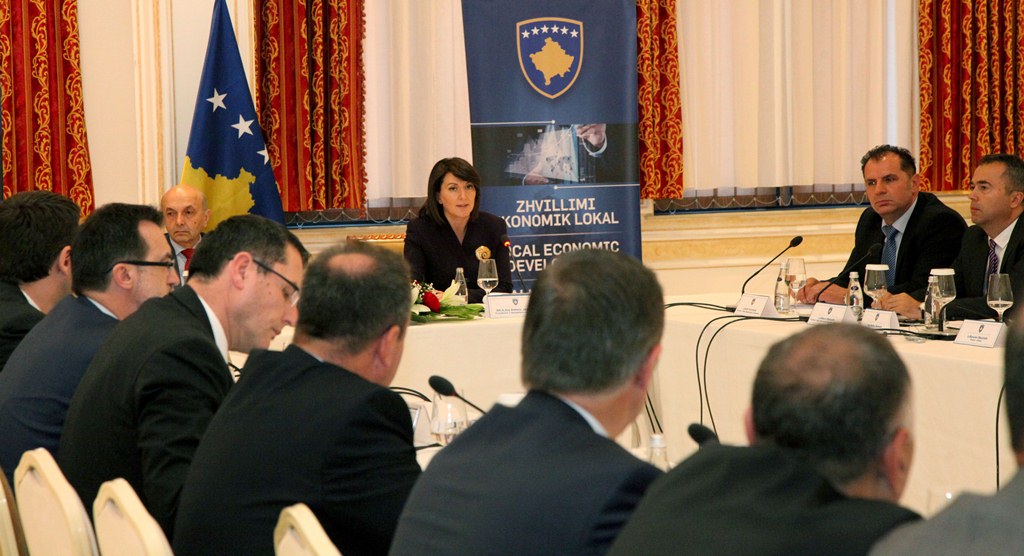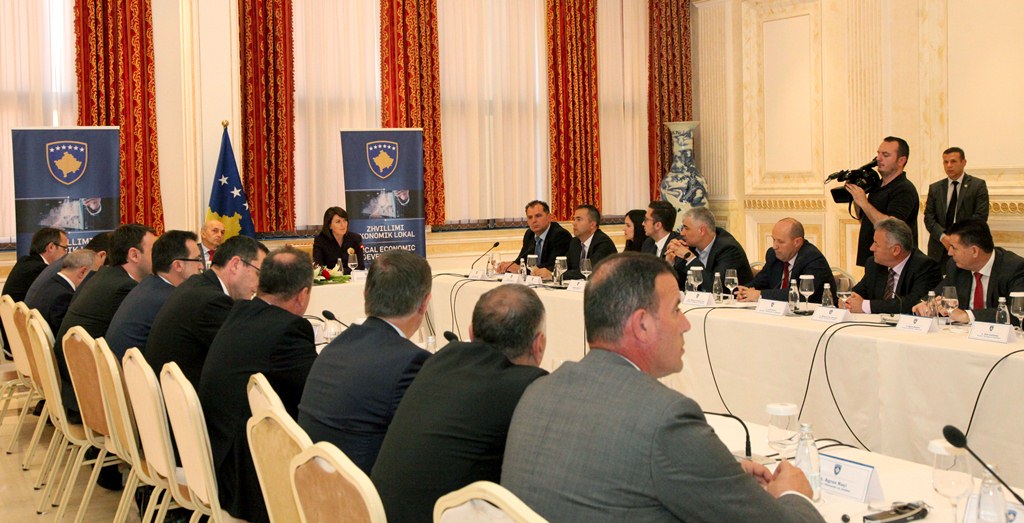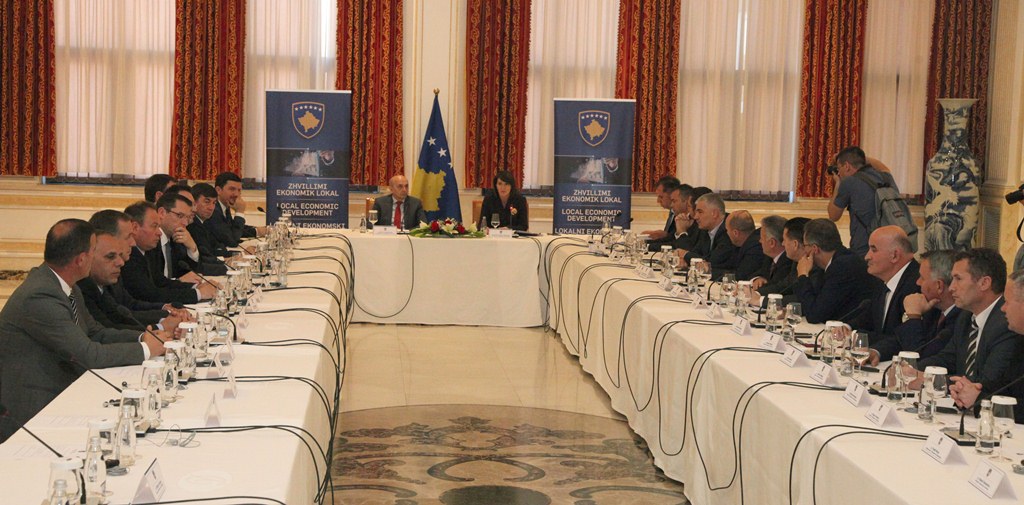In the frame of my commitments to thematize the fundamental issues for economic development, in the beginning of this year, together with the Kosovo Chamber of Commerce, the German Chamber of Commerce and the American Chamber of Commerce, I have visited some of our municipalities and got informed about the challenges towards the promotion of employment and investment.
Ladies and Gentleman,
In the frame of my commitments to thematize the fundamental issues for economic development, in the beginning of this year, together with the Kosovo Chamber of Commerce, the German Chamber of Commerce and the American Chamber of Commerce, I have visited some of our municipalities and got informed about the challenges towards the promotion of employment and investment.
I am happy that today we are gathered here to jointly discuss about the results of these visits and to address the challenges that hinder business development, the creation of jobs and the raising of the living standard for the citizens of our country.
Sustainable economic development is achievable only through long-term policy-making and planning. Governmental development strategies must be designed in close and continuous cooperation also with the municipalities, encouraging them to be permanent actors in the implementation of these strategies. A more powerful coordination and cooperation between the government and the municipalities is necessary. Ad-hoc and fragmented policymaking must be avoided, because in this way only unsustainable and short-term results can be achieved. The consequences of such policies are being felt today by the private sector and our citizens
Policy-making and the implementation of policies require institutional competence. Our municipalities have an increased need to raise their capacities, to be in service of economic development. The measures for boosting the institutional capacities and the effectiveness are necessary to achieve the satisfactory levels of public services, always keeping under control budgetary spending.
Various studies demonstrate that a significant number of municipalities in Kosovo offer insufficient services for business. This is then reflected in a lower level of business activity in those municipalities. The municipalities which have, for example, better infrastructure and a more powerful human resources base, manage to attract more investment and vice versa. It also makes clearer the necessity of creating instruments that improve business conditions in municipalities, the quality of governance, and to strengthen the public-private dialogue at municipal level.
Through our visits we have noticed that more must be done to identify priorities and challenges the businesses are facing in municipalities, with the aim of building real concepts to shape the economic future across regions. This configuration implies the construction and implementation of development concepts on the strong, specific and unique points of the municipalities and regions rather than copying them from others. Such concepts create the conditions and capacities, for our economy to identify and develop its internal resources in order to become competitive in the national and regional market, but also on global markets.
Our economy can be considered competitive when our citizens will be able to enjoy high and growing living standards and high employment on a sustainable basis. In such conditions, the level of economic activity will not cause unstable external balance nor will jeopardize the welfare of future generations.
The competitiveness of our national economy begins from the creation of free and fair conditions of the market to produce goods and services that meet the test of international markets, while simultaneously contribute to the expansion of the real incomes of the citizens.
Therefore, what we have tried to achieve with these visits is a better understanding of the issues which are important for the improvement of economic governance, starting from the municipalities, with the long-term goal of achieving economic prosperity for all our citizens.
Now we have signed the SAA we must also consider the measures and means in order to avoid the costs of adapting to trade liberalization with the EU, particularly when it comes to the loss of budget revenues and the increasing of the competitive pressure for our companies. Parallel to this we need to develop appropriate initiatives that facilitate the reallocation process of the resources towards the sectors which benefit from liberalization.
Our energies should focus on activities beyond analyzes and debates. Now concrete initiatives are required through continuous dialogue with the private sector to shape the path of economic development. The public sector in general and the municipalities in particular have no franchise in policy development. Their role becomes powerful and efficient only when these policies are designed together with the private sector, chambers of commerce and civil society and when their implementation is done under joint monitoring. All this policy making and their implementation must promote and preserve the economic conditions that enable the emergence of new initiatives on the market inter alia and by supporting the creation of knowledge and increasing the level of knowledge and innovation, the strengthening of entrepreneurship and the access to markets and capitals.
In the end, let me thank the Kosovo Chambers of Commerce for their contribution during these visits and to encourage them to continue to cultivate the dialogue for the benefit of economic development and the welfare of the citizens of the Republic of Kosovo.



